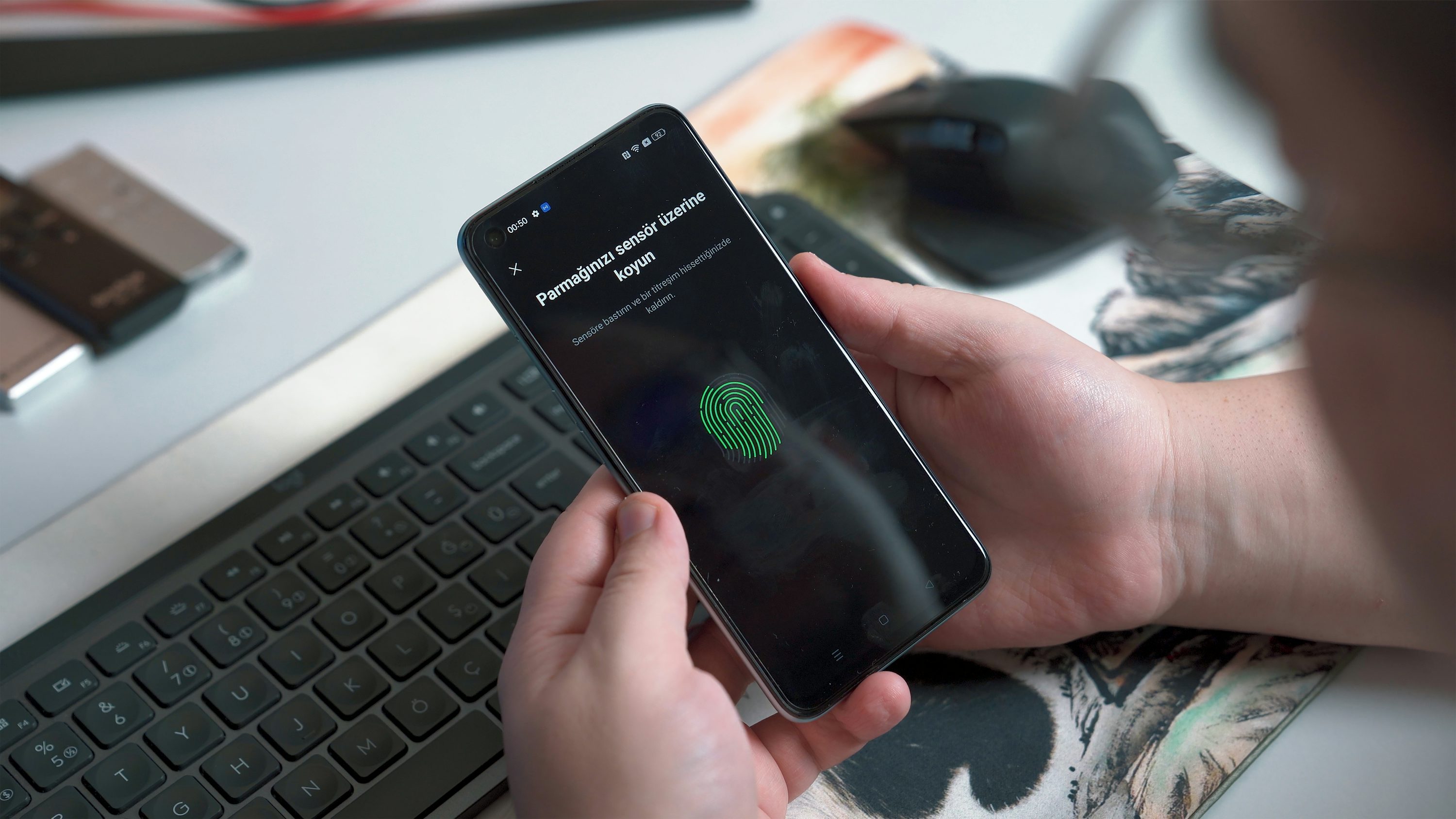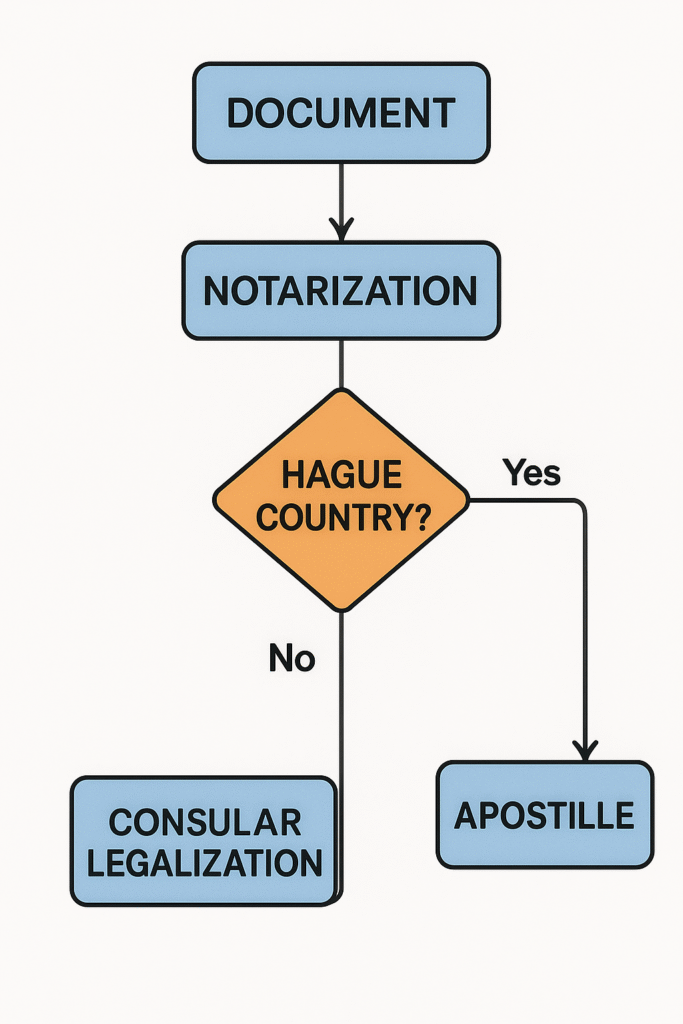Key Facts
- Document authentication is essential for international use, ensuring legitimacy of U.S.-issued documents for foreign governments and institutions.
- The process involves notarisation, apostille certification, or consular legalisation, depending on the destination country's requirements.
- Common scenarios requiring authentication include international employment, marriage, real estate transactions, and visa applications.
- Steps include identifying requirements, notarising documents, obtaining apostilles, and ensuring translations are certified if necessary.
- Utilizing services like Anshin Mobile Notary and LiveScan can simplify the authentication process with mobile notary services and expert guidance.
Whether you’re relocating, expanding a business overseas, studying abroad, or handling international legal matters, properly authenticated documents are a necessity. Most foreign governments and institutions require verification of U.S.-issued documents to ensure their legitimacy. This process—commonly known as document authentication—serves to prove the authenticity of signatures, stamps, or seals on official paperwork.
For individuals and businesses in California, Anshin Mobile Notary and LiveScan provides trusted mobile notary and LiveScan services, guiding you through the various steps of international document authentication with confidence and efficiency.
What is Document Authentication and Why Does It Matter?
Document authentication refers to a process through which a document becomes legally accepted in a foreign country. It’s not simply about having the right paperwork; it’s about ensuring that each document has been verified and endorsed by the appropriate authorities in a format recognised by the destination country.
For example, submitting a birth certificate to a university in Europe, a power of attorney for property management in Asia, or business contracts for partners in the Middle East all typically require some form of authentication.
The process you follow depends on whether the destination country is a signatory to the Hague Apostille Convention of 1961 or not.

Three Main Stages of Document Authentication

The authentication process typically consists of one or more of the following steps:
Notarisation
This is the foundation of document authentication. A certified notary public verifies the identity of the signer and witnesses the document’s signing. This step confirms that the document was executed freely and legally. At Anshin Mobile Notary and LiveScan, we provide convenient mobile notary services throughout California, ensuring your documents are notarised accurately and promptly at a location that suits you.
Apostille Certification
If the country receiving your document is a member of the Hague Apostille Convention, you’ll need an apostille from the California Secretary of State. The apostille confirms the legitimacy of the notary’s signature and commission. The apostille itself is a single-page certificate attached to your document.
Consular Legalisation (for non-Hague countries)
For countries that are not part of the Hague Convention, documents must undergo a more complex process. After notarisation and state-level authentication, the document must be submitted to the U.S. Department of State, and then to the embassy or consulate of the destination country for legalisation.
When Do You Need to Authenticate Documents?
There are many circumstances where authenticated documents are a legal requirement abroad. Some common scenarios include:
International Employment
Employers may request notarised and apostilled academic transcripts, recommendation letters, or professional certifications.
Marriage, Divorce, or Adoption
If you’re getting married or adopting abroad, you’ll need to provide authenticated documents such as birth certificates, divorce decrees, or consent forms.
Foreign Real Estate Transactions
Selling or purchasing property overseas often requires authenticated powers of attorney, affidavits, or financial statements.
Studying Abroad
Educational institutions may ask for diplomas, criminal background checks, or reference letters to be authenticated.
Business Operations
Companies entering into agreements or establishing foreign branches will need to authenticate contracts, articles of incorporation, or certificates of good standing.
Immigration or Visa Applications
Supporting documents, including police clearance certificates and bank letters, often need apostille or legalisation for immigration purposes.
A Step-by-Step Guide to Authenticating Your Documents
1. Identify the Destination Country’s Requirements
Start by checking whether the country where you are sending the documents is a member of the Hague Apostille Convention. If it is, you’ll likely need only an apostille. If not, you’ll need to go through a longer legalisation process.
You can find a complete list of member countries on the Hague Conference website. It’s also helpful to confirm the specific requirements with the institution or agency receiving your document.
2. Get the Document Notarised
Most documents must be notarised before they can be submitted for apostille or legalisation. Anshin Mobile Notary and LiveScan can visit your home, office, or any convenient location in California to perform this notarisation.
Some documents, like birth or death certificates, are issued by government agencies and may not require notarisation, but instead must be certified copies directly from the issuing authority.
3. Obtain an Apostille (If Applicable)
If your document is for a Hague member country, it should be sent to the California Secretary of State for an apostille. For federal documents like FBI background checks, the apostille must be issued by the U.S. Department of State.
An apostille validates the notary’s commission and signature, making the document legally acceptable abroad.
4. Proceed with Consular Legalisation (If Required)
For non-Hague countries, additional steps are required. After notarisation and state authentication:
- Submit the document to the U.S. Department of State in Washington, D.C.
- Then submit it to the relevant foreign embassy or consulate for final legalisation.
This multi-tier process ensures the document meets the diplomatic standards of the receiving country.
5. Translate the Document if Necessary
Many countries require documents to be translated into their official language. This translation should be certified and, in some cases, notarised and apostilled as well. Anshin Mobile Notary and LiveScan can assist by directing you to certified translation services.
6. Review for Accuracy Before Sending
Once all steps are completed, carefully check that all seals, signatures, and stamps are accurate and that there are no inconsistencies. Even minor issues can cause the document to be rejected.
Common Pitfalls to Avoid
Using an Unlicensed Notary
Using a non-authorised individual for notarisation can invalidate the entire authentication process. Ensure your notary is licensed and experienced—Anshin Mobile Notary and LiveScan offers verified mobile notary services you can trust.
Skipping Translation Requirements
Some countries will reject documents that are not translated properly. Always confirm translation requirements before submitting.
Submitting to the Wrong Office
Every state has different procedures. Make sure you’re sending your documents to the correct Secretary of State office or U.S. Department of State, depending on the origin and type of document.
Rushing the Process
The document authentication process can take days or weeks depending on the destination and complexity. Plan ahead to meet your deadlines without stress.
How Anshin Mobile Notary and LiveScan Can Help
We provide comprehensive support through every stage of your document authentication process:
- Mobile Notary Services: We come to you—whether you’re at home, your office, hospital, or another location.
- LiveScan Fingerprinting: Required for many background check submissions, our digital fingerprinting service is quick and compliant.
- Authentication Guidance: We walk you through every step, from notarisation to apostille to legalisation.
- Translation Referrals: For documents that need to be professionally translated, we connect you with certified experts.
- Real-Time Updates and Personalised Support: Our team ensures you understand each requirement and avoid delays.
We aim to simplify complex documentation procedures so you can focus on what matters most—your international venture or legal process.
Explore our services at https://anshinotary.com or reach out for a consultation today.
FAQs
What’s the difference between an apostille and legalisation?
An apostille is a streamlined certification process used between countries in the Hague Apostille Convention. Legalisation is a more complex, multi-step verification process used for non-member countries and involves foreign consulates.
Do all documents need to be notarised before getting an apostille?
Not necessarily. Certified documents issued by government agencies (e.g., birth certificates) may not need notarisation but must be certified copies. Most other documents do require notarisation.
How long does it take to authenticate a document?
It depends on the document type and country. Apostilles can be processed in a few days, while full legalisation may take several weeks. Anshin Mobile Notary and LiveScan helps you plan timelines accordingly.
Can you apostille a document yourself?
While it’s possible, mistakes are common and can lead to rejected applications. Professional guidance from a team like ours ensures the correct steps are followed and timelines are met.
Does Anshin Mobile Notary and LiveScan handle international clients?
Yes! Whether you’re preparing documents for use abroad or require fingerprinting for international applications, we provide the expertise and mobile convenience you need.
Final Thoughts
Document authentication is a crucial but often misunderstood step in preparing paperwork for international use. Whether you’re heading abroad for school, marriage, work, or business, knowing how to authenticate your documents properly is essential to avoid delays, rejections, or legal complications.
At Anshin Mobile Notary and LiveScan, we make this process smoother by offering mobile notarisation, expert guidance on apostilles and legalisation, and dependable LiveScan fingerprinting services.
Let us handle the details so you can focus on your international goals with confidence.
Contact us today at https://anshinotary.com to get started.

